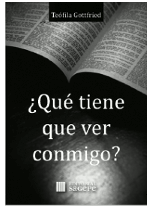Truth really can be stranger than fiction.
First Page - Now launched! All the stories are true, or based on real events. Unlimited reading for $4.99 / month. No downloads. Read on your phone, tablet or computer.
La verdad puede ser más extraña que la ficción.
First Page - ¡Ya está en marcha! Todas las historias son verídicas, o están basadas en hechos reales. Lectura ilimitada por $4.99 / mes. No hay que descargar nada. Lea en su teléfono, tableta u ordenador.
Manna Minutes Podcast: Eye-opening Bible study in less than five minutes! Access all episodes here.
Manna Minutes en español:
Estudio bíblico que nos hace abrir los ojos en menos de cinco minutos! Acceda a todos los episodios aquí.
Manna Minutes Podcast auf Deutsch:
Augenöffnendes Bibelstudium in weniger als fünf Minuten! Alle Episoden finden Sie hier.
Was There A Curse On Helen's Romantic Life?
The Third Man by Angela Sheffield is based on a true story. Read chapter one now!
View Content By Specific Category
¿Qué tiene que ver conmigo? por Teófila Gottfried
Lo que leemos en la Biblia tiene que ver con todos los seres humanos, sean cristianos o judíos, ateos o agnósticos, budistas, musulmanes o adherentes a alguna de las filosofías o nuevas religiones que surgen en el mundo. ¿Por qué? Ver mayor información sobre este interesante libro.
Scripture of The Day - St. John 14:6
Jesus saith unto him, I am the way, the truth, and the life: no man cometh unto the Father, but by me.
Escritura del día - San Juan 14,6
Jesús le dijo: Yo soy el camino, y la verdad, y la vida; nadie viene al Padre, sino por mí.
Bibelstelle des Tages - Johannes 14,6
Jesus spricht zu ihm: Ich bin der Weg und die Wahrheit und das Leben; niemand kommt zum Vater, denn durch mich!
Commentary On Hebrews 5:8-9: Jesus Was Made Perfect And Learned Obedience?!

In St. John 8:29, Jesus says, "...the Father hath not left me alone; for I do always those things that please Him".
And we read in 2 Corinthians 5:21 that Christ knew no sin.
Furthermore, the apostle Peter tells us that Jesus is the Lamb of God, "a lamb without blemish and without spot." (1 Peter 1:19).
All of the above translates to nothing less than perfection. Why then does the same Bible say Jesus learned obedience, and that He was made perfect?
We read, "...Though he were a Son, yet learned he obedience by the things which he suffered. And being made perfect, he became the author of eternal salvation unto all them that obey him." (Hebrews 5:8-9).
We err when we think"learned obedience" means that Christ was once disobedient, or that obedience was something he had to acquire through a learning process. Likewise, we err when we think "made perfect" means that Christ was once imperfect. In biblical Scripture, the meaning of the words "learn" and "learned" is NOT restricted to meaning the gaining of knowledge or a skill. Scripture freely uses "learn" and "learned" to refer to a person's deeds. His actions. In other words, we see "learn" used to mean "do", and the past tense "learned" used to mean "did".
Let's see real Old and New Testament examples of this usage of "learn" and "learned". We will then learn the true meaning of "made" as in "made perfect".
Proverbs 22:24-25 says: "Make no friendship with an angry man. And with a furious man thou shalt not go, lest thou learn his ways, and get a snare to thy soul."
It's obvious Scripture is not using "learn" to mean acquire the knowledge of the evil ways of the angry and furious man. We already know the type of things people do in anger and fury. Things that displease God. And, when has God ever punished anyone in Scripture for simply learning what awful things the wicked do? Saints and sinners alike can't help but to learn the things the angry, the furious, and the wicked do. They're often their victims. So, "learn" is clearly NOT being used to mean acquiring the knowledge of what the angry and furious man does, but rather refers to DOING the things such an individual does. "Lest thou learn his ways, and get a snare to thy soul" clearly means, lest you DO as he does, and ensnare yourself.
Another example of "learn" being used to mean "do" is found in Jeremiah 10:2, which says, "Thus saith the Lord, Learn not the way of the heathen." By this point in Scripture, God's people have already learned what sins and abominable things heathen do. They've lived for centuries in Egypt where the occult was heavily practiced. They've encountered heathen in the promised land. They've encountered heathen in various wars. Obviously, "learn" does not mean acquire the knowledge of heathen ways. "Learn not" means do not DO what heathen do.
Now let's take a look at a couple of New Testament passages in which "learn" is synonymous with "do". We read, "But if any widow have children or nephews, let them learn first to shew piety at home..." (1 Timothy 5:4).
The children do not need to intellectually learn how to do what is right towards their parents. They need to DO it. So, "learn" is again being used to mean "do".
The above Scripture reminds that it is good in the sight of God for children to repay their parents by helping them in their time of need. That is not something we have to learn as in learning what that means. We know what it means. When Scriptures says, "let them first learn to show piety at home", obviously that means let them first DO what is right towards their own parents.
This usage of "learn" is not unique to the Bible. We often hear things like, "Until you learn to act right, you are expelled." It's not that the person has to intellectually learn to do what is right. He already knows what is right. He simply must DO it.
So, when we read, "Though he were a Son, yet learned he obedience", we should know that is saying that though He (Christ) was a Son, He WAS obedience. He DID what was obedience. The Hebrews passage emphasizes that He learned (did) obedience "by the things which he suffered." Remember, Christ was NOT forced to suffer for us. Nevertheless, He learned obedience (was obedient) even in suffering...a suffering He was not obligated to endure.
He reminds us of this truth in St. John 10:17-18, where He says, "I lay down my life... No man taketh it from me, but I lay it down of myself. I have power to lay it down, and I have power to take it again."
And when they went to arrest Jesus, they could not have taken Him had He not been willing to go. Christ said, "Thinkest thou that I cannot now pray to my Father, and he shall presently give me more than twelve legions of angels?" (Matthew 26:53).
Now then, we also read, "...And being made perfect, he became the author of eternal salvation..." (Hebrews 5:9)
The question was how could Jesus be "made" perfect if he was already perfect? Again, we would not ask this question if we knew that the Bible makes use of the word "made" to mean "considered". Yes, we see in Scripture that it is actually synonymous with "considered". Let's see real examples.
We read, "Christ hath redeemed us from the curse of the law, being MADE a curse for us..." (Galatians 3:13).
A basic understanding of the Bible includes knowing that Christ is the blemish-free Lamb of God who blesses all who receive Him as Lord with salvation. How can a curse bless anyone? When Scripture says He was "made" a curse for us, reference is being made to the fact that He was CONSIDERED a curse in his work of redemption for our sake. "Being made a curse" does not mean He was once blessed, and then became cursed. No. It means He was "thought of" as a curse for our sake. He was CONSIDERED a curse for our sake. Likewise, when Hebrews 5:9 says He was made perfect, that is the exact same thing as saying He was considered perfect. He was considered perfect by the Father. And whatever God considers in His mind is what is truth. Jesus was perfect, because He was made (considered) perfect. The perfect Jesus was also made (considered) a curse, because that is what the Father required to free us from the curse. And only a perfect being could do that. Jesus was not literally a curse, but He had to be CONSIDERED (made) a curse to free us.
This is not our conclusion. This is revealed in Scripture, which also says Jesus was MADE sin for our sake. He was NOT literal sin. However, He had to be CONSIDERED sin to bear our sins. This is why we read, "For he hath MADE him to be sin for us who knew NO sin..." (2 Corinthians 5:21).
Scripture plainly tells us Christ "knew no sin". Translation: He never sinned. He was NOT literal sin. The same Scripture tells us He was "made" sin. Conclusion: He was CONSIDERED sin by the Father for our sake.
Many misunderstandings and erroneous interpretations of the Bible can be avoided by maintaining a right attitude toward God, and by getting understanding of every word as we have done in this case with "learn/ed" and "made".
 Based on true events, The Third Man by Angela Sheffield, brings the Bible up close and personal as the characters face real issues of life: Betrayal, deceit, romance, bitterness, anger against God, hopelessness, will power, perplexity, triumph, unforgiveness, mental illness, and the "Alcohol made me do it" excuse. Read chapter one FREE now.
Based on true events, The Third Man by Angela Sheffield, brings the Bible up close and personal as the characters face real issues of life: Betrayal, deceit, romance, bitterness, anger against God, hopelessness, will power, perplexity, triumph, unforgiveness, mental illness, and the "Alcohol made me do it" excuse. Read chapter one FREE now.
Copyright notice: This website and its content is copyright of © Heavenly Manna (HeavenlyManna.net) 2002-2025.
Comments/Comentarios:
Send Comments or a Private Message about One of Our Services / Envíe Comentarios o un Mensaje Privado acerca de nuestros servicios
Once comments reach 10, they close. IF YOU USE PROFANITY, WE WILL REJECT YOUR COMMENT AUTOMATICALLY.
We're a small team, please be patient as we review comments.
©2003 - 2013 Heavenly Manna Ministries
Images: courtesy of Free Digital Photos, openstockphotography.org, FreeFoto.com, Wikimedia Commons. Multiple crosses image - Wikimedia Commons - C.G.P Grey - Animation by Heavenly Manna










